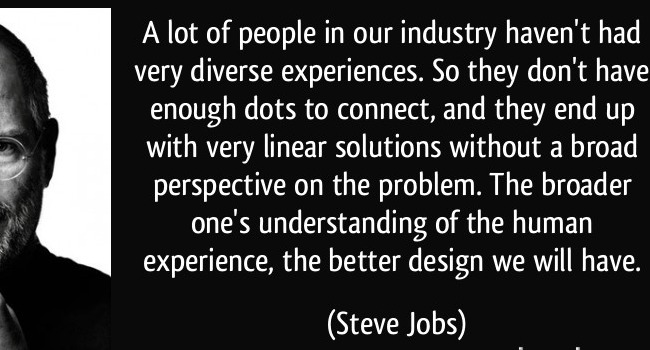
SHARE
READ & LEAVE A COMMENT

People are constantly changing—and their interests and career aspirations often change with them. For Millennials, who came of age in an era marked by uncertainty, this career anxiety is especially acute. Ambiguity over majors has become the norm at many colleges and universities and, by some metrics, 90 percent of Millennials won’t stay at their current jobs for more than three years.
Driven largely by ambitious life goals, an increasing number of career options and an economy that has forced Millennials to take unwanted jobs, this new reality has given rise to an increasing number of young workers with diverse and often fragmented academic and professional backgrounds. For many job-hopping Millennials, this resume profile can hinder credibility and confuse would-be employers looking for more relevant expertise and experiences. With some clever positioning, however, even the most unconventional backgrounds can be made relevant to an array of career paths.
As an example, I studied theology and political economics in undergrad, and went on to get a graduate degree in theology as well—hardly the most practical field of study. Coming out of college, the bulk of my work experience was in website and web application development, but found programming to be tedious. So, rather than pursue a career in academia, government or computer science, I leveraged my background in theology to help me get into brand strategy and organizational identity. Religions, after all, have struggled with questions of identity for thousands of years and have proven to be some of history’s most powerful brands.
Fortunately for Millennials with diverse backgrounds, once distant industries are becoming increasingly interrelated and interdependent in our interconnected world. This shift has created opportunities for Millennials with unconventional experiences to pursue unexpected career paths—if they position themselves in the right way.
For instance, if you studied English in college but want to get into Big Data, you could position yourself as an expert in the theory behind natural language processing—a really hot data analytics subfield. Or, to reverse the paradigm, maybe you’ve only worked in technology marketing and want to get into politics. You could become a subject matter expert on cybersecurity or user privacy—two critical and increasingly debated public policy issues. Given the convergence fueled by technology, there is no reason that your career has to be stymied by those seemingly irrelevant majors or those seemingly obscure work experiences.
Diverse experiences don’t have to hold you back. On the contrary, they can help propel you forward.
Below are some tips for using disparate experiences to help you position yourself for the next big career move:
SHARE
READ & LEAVE A COMMENT
One Response
Love it, this type of personal branding is exactly what I try to get my clients to think about when creating out-of-the-box careers. I have a graduate degree in atmospheric science that helped me get a job as a science writer, but then I left both those things behind to be a career coach. I’m multi-passionate, my career will not be linear, and that’s ok.